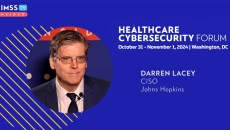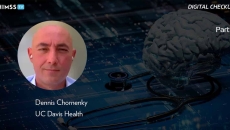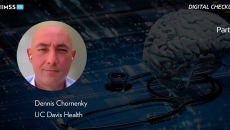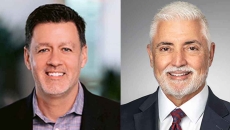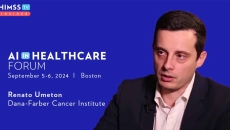Artificial Intelligence
The expectation is for a new Congress to create policy around AI and cybersecurity, says Tom Leary of HIMSS.
Using AI to extract data is one of the more promising areas of cybersecurity, says Darren Lacey, CISO at Johns Hopkins.
UC Davis Health has adopted technology in a partnership to prioritize stroke cases and share information across academic medical centers. This led to efficiencies and better patient outcomes, says chief AI advisor Dennis Chornenky.
It's important for chief AI officers to have a strong sense of the regulatory environment and the skills to align AI investments to the company's business strategy, says Dennis Chornenky, UC Davis Health's AI chief.
Core concern of labor and supply inflation are growing at a faster rate than payment and workforce issues haven't gone away, CFO says.
Predictive intelligence gives accurate case duration in integration with existing systems.
AI recommendations in coding capture 100% of what’s sent out versus a manual process in which when staffers select subsets of encounters from within hundreds of documents, says AKASA CEO and cofounder Malinka Walaliyadde.
Medical illustrators need to take complex information and edit out what is not the physician's focus, such as an injury. AI has not learned proper cellular anatomy, says David Bolinsky, producer of The Inner Life of the Cell and E.mersion Studios CEO and creative director.
AI is only as good as the quality of the data, says Sundar Shenbagam, chief technology officer at Edifecs.
ChatGPT for large language models called GPT4DFCI was built on Microsoft Azure and is being used by Dana-Farber Cancer Institute to streamline work and conduct research, says Renato Umeton, director of AI operations and data science services.

